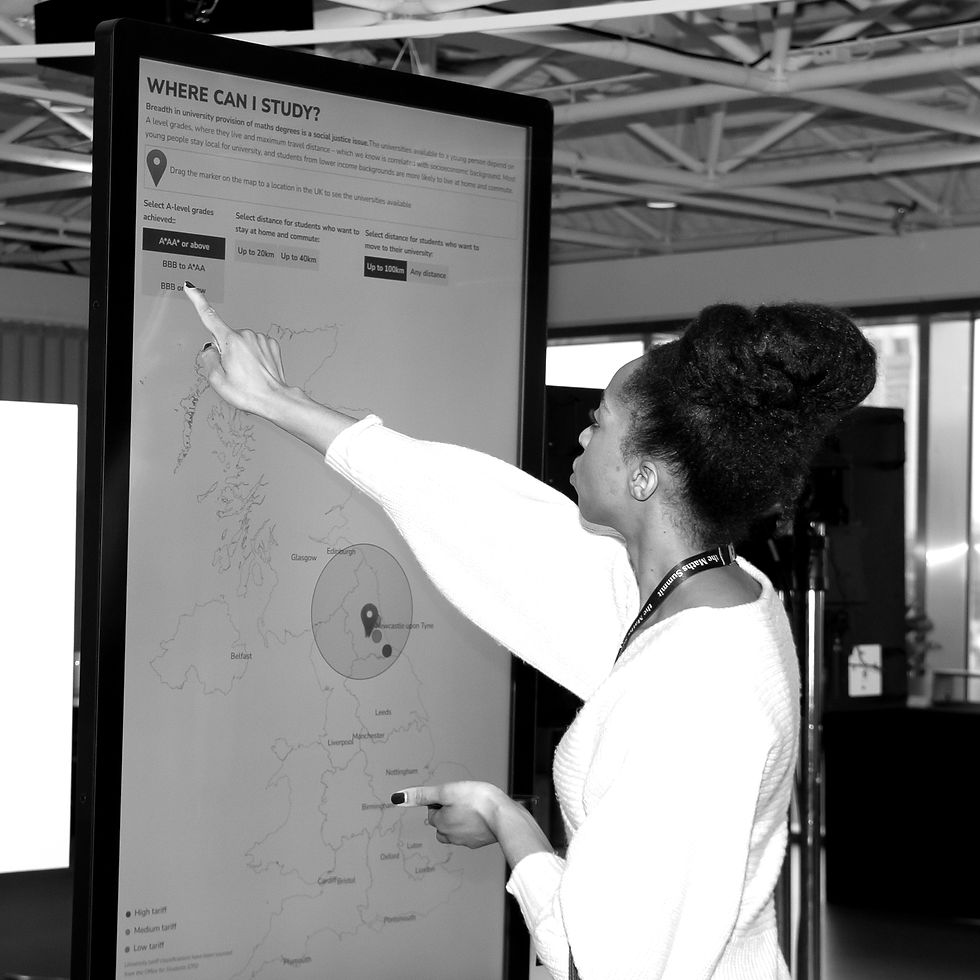Maths Degrees for the Future
we are calling on the government to support universities to prioritise maths teaching and to prevent further course closures.
Maths graduates are among the most productive in the UK, making significant contributions in academia and industry, as well as to the Exchequer. They command a high wage premium, with maths being ranked in the top three subjects for graduate earnings. They are also highly prized in areas of strategic importance, including by GCHQ, which is the UK’s largest recruiter of pure mathematicians.

We must maintain a healthy ecosystem of maths degrees for the future, with strong and sustainable provision in every region. This needs to include the full breadth of courses, from those that compete to recruit star students from around the world, to those from which graduates are disproportionately likely to enter careers in education.
Maths Degrees for the Future
Maths is once again the most popular A Level subject with 105,000 entries in 2025. This is up by more than 4% compared with 2024. Further A Level maths entries have also risen by 7.5% compared with 2024, with over 18,000 entries this year. There is a big opportunity to build on the growing popularity of maths among young people and extend this into degrees.
However, while there has been a welcome increase in the size of maths degree programmes, mostly at research-intensive universities, maths degree enrolments have been stubbornly flat for a decade. This contrasts with subjects like computer science, which have grown significantly over the same time period. We have produced an interactive chart that shows these changes.
Worryingly, many smaller maths degree programmes, mostly at universities that have lower entry requirements, have been shrinking and are under threat. Brighton University, Oxford Brookes University and Birkbeck College have already cancelled or scaled back their maths degree programmes. This creates a significant risk to both the diversity of the maths undergraduate population and the development of maths teacher talent. Indeed, research commissioned by the Council of Mathematical Sciences shows that graduates of these smaller maths departments with lower entry requirements are more likely to enter careers in education.
An action plan is needed to maintain a healthy ecosystem of maths degrees for the future, including strong and sustainable provision in every region. As well as calling the government to take action, CaMS is delighted to announce the winners of the first round of our Maths Degrees for the Future Grants project.
Related content
Get Involved
Please email cams@connectpa.co.uk if you want to get involved in the campaign or if we can help with your work. You also can sign up for the CaMS newsletter using the form on this page.
We are always looking for help and suggestions to advance the mathematical sciences, including from new campaign supporters and industry partners.
We are always happy to help by sharing data and insights about the mathematical sciences, and with media queries and speaking opportunities, and policy briefings and visits.








